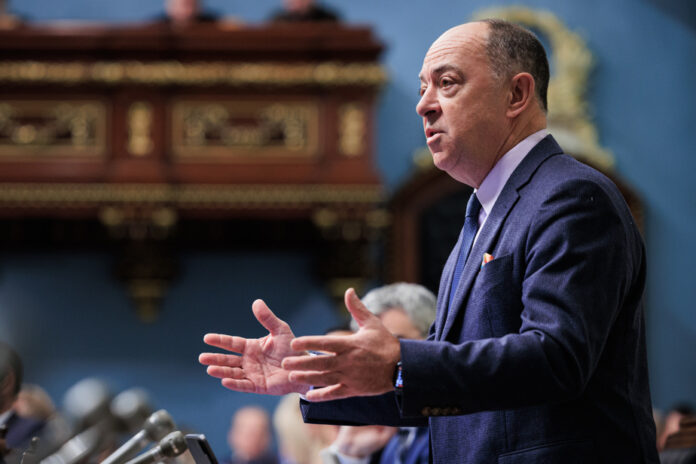(Quebec) The Minister of Health and Social Services, Christian Dubé, wants “top guns” from the private sector to lead his future agency Santé Québec, a way to improve the performance and efficiency of the largest network in Quebec. state, he said.
He is ready to put competitive salary offers on the table to attract candidates, even if it means stepping outside the standard public sector remuneration framework.
According to what La Presse has learned, in an exceptional initiative, Christian Dubé will speak on Monday behind closed doors to some fifty business people who responded to an invitation made through the Board of Trade of Metropolitan Montreal. . They are executives of companies such as IBM Canada, Google Canada, Énergir, Accenture, Pharmaprix and KPMG.
Christian Dubé, himself a former vice-president of Cascades, will ask them to recommend candidates from among their networks to fill the seven or eight management positions at Santé Québec, which will be in operation next year.
CEOs of CISSSs and CIUSSSs will report directly to Santé Québec; the boards of directors of these establishments are called into question, because the number of administrative levels will be reduced.
Health Quebec has often been portrayed as a shift of two or three branches of the Department’s organization chart and a transfer of civil servants to an agency with an operational mandate. But as Prime Minister François Legault pointed out in an interview with La Presse earlier this month, it will be much more. Major changes are coming in the governance of the health network – just like in that of Education, for that matter, he insisted. In particular, Quebec wants to give itself more power in management, without “centralizing everything”.
Christian Dubé also took up the Prime Minister’s message by declaring a few days ago that “the columns of the temple will shake”. His bill will also focus more broadly on improving the “efficiency” of the health network.
In front of business people, Christian Dubé will not cut corners, it is reported behind the scenes: the health system is inefficient. The creation of Santé Québec aims to give a boost.
The agency will implement the Health Plan unveiled by the Minister a year ago and whose results have been mixed so far. For the moment, the minister is giving himself a result slightly above the passing mark, especially welcoming the fact that more Quebecers than expected are now registered in a family medicine group.
To carry out his plan, Christian Dubé wants new faces and, above all, new profiles at the helm of the health liner which has more than 330,000 employees. The government wants a change of culture, we replied to La Presse, which has heard of its intentions to recruit in the private sector in recent weeks.
He does not want to limit himself to civil servants to fill positions at Health Quebec, we explain. We will certainly give some promotions internally, and we will draw on the seraglio of public administration in order to have people who know the health system. But to transform the network as he wishes, the Minister wants to add to the management of Santé Québec additional people from outside, leaders and managers of companies considered to be efficient. Private sector top guns, as they say behind the scenes.
We even say we are ready to leave the current remuneration framework of the Ministry of Health.
In an interview, François Legault referred to the new agency as a “Hydro-Santé”, suggesting that Santé Québec should be seen as a similar organization. Hydro-Quebec is a commercially oriented Crown corporation – which Health Quebec will not be, of course. It pays high salaries to its executives, in the low hundreds of thousands – more than $600,000 for its CEO Sophie Brochu, who will step down next month.
Quebec has not yet set a pay scale for the leaders of Santé Quebec. We do not advance on amounts. It is therefore unknown for the moment how far it will go.
Dominique Savoie earns $310,000 as Deputy Minister of Health – her position is not in question; their salary has just been increased. As is customary, physicians who become deputy ministers often earn more: for example, former assistant deputy minister Lucie Opatrny was entitled to over $360,000 and now gets close to $400,000 as CEO of the McGill University Health Center (MUHC) – it will be hierarchically under the direction of Santé Québec. Other deputy ministers earn around $200,000. Several senior civil servants, and not just in Health, have received significant salary increases in recent months.
Currently, with one or two exceptions, we find career civil servants, former political employees and managers from the health network at the top of the Department’s sprawling organization chart.


















